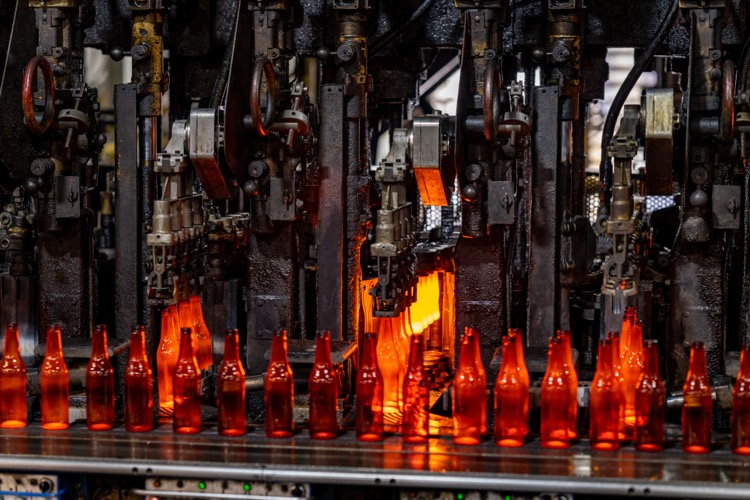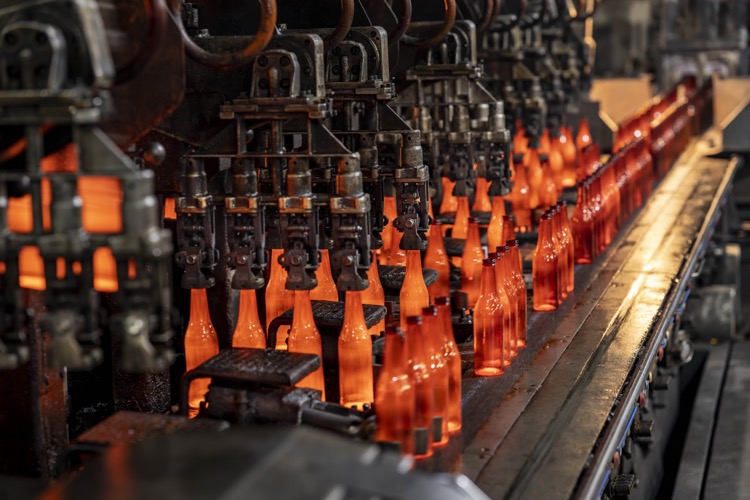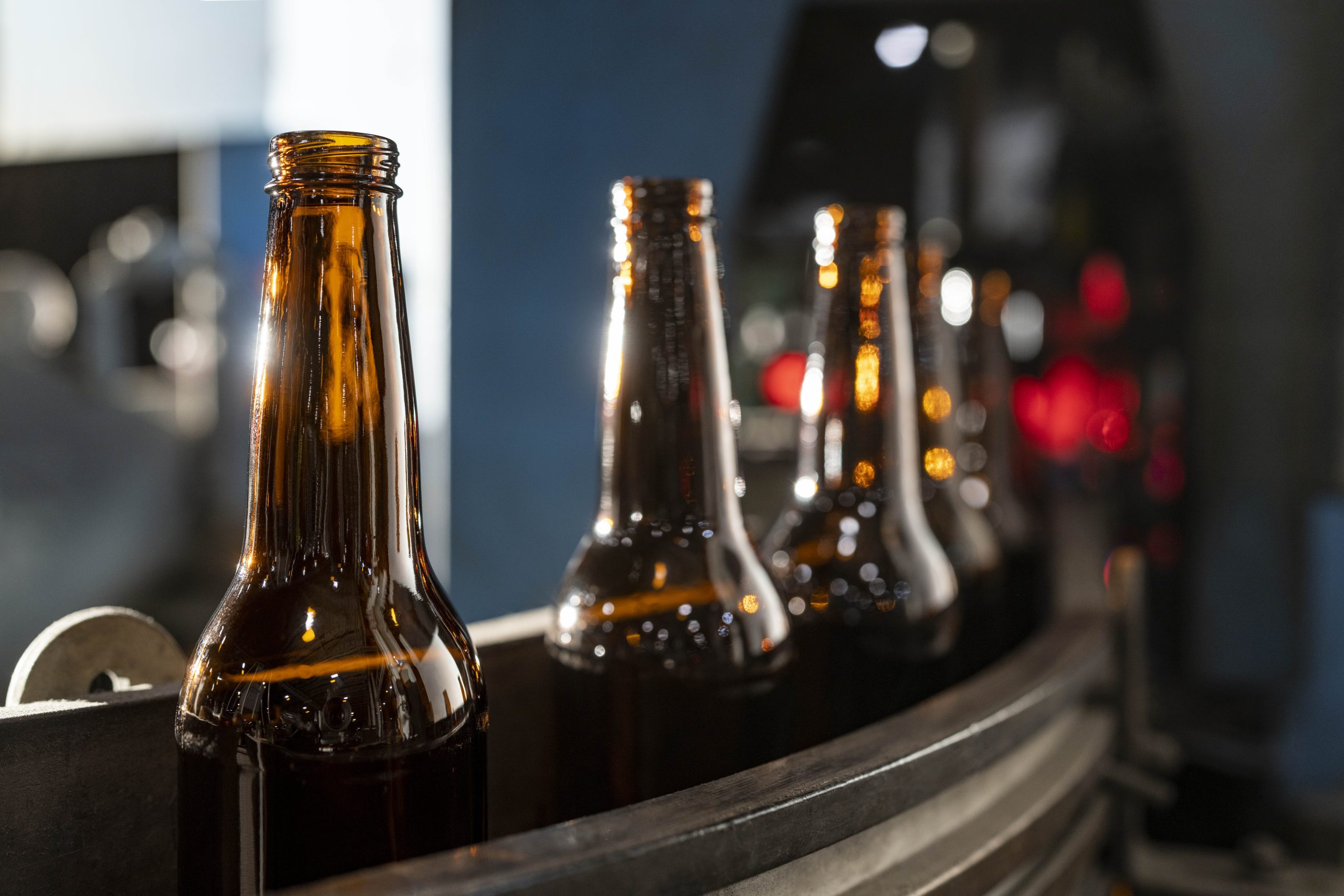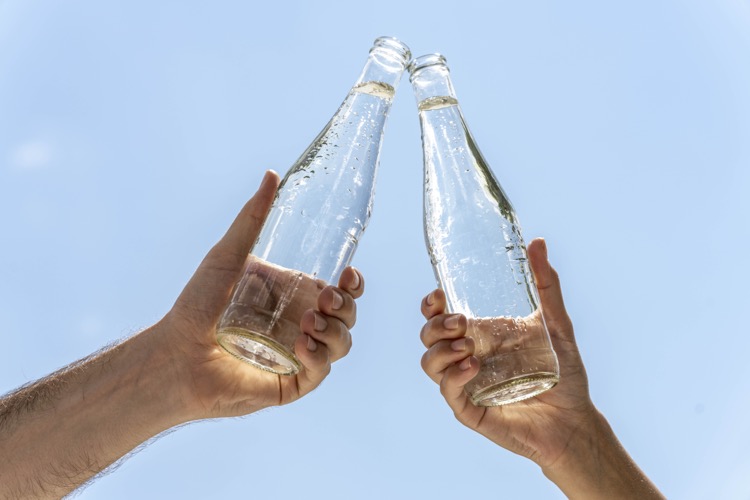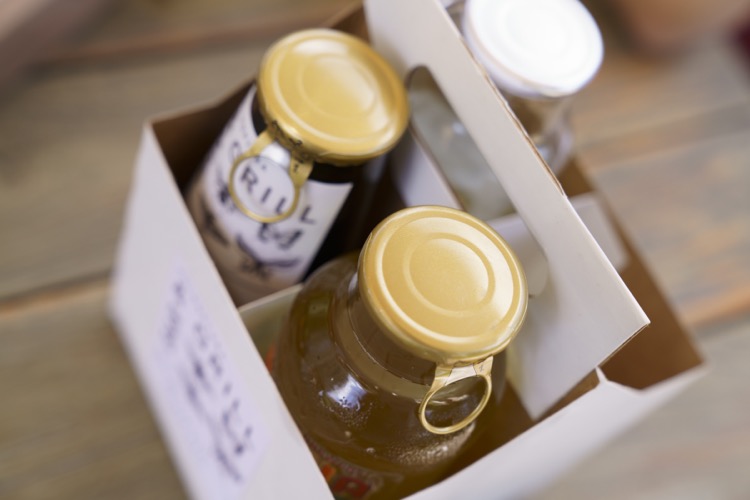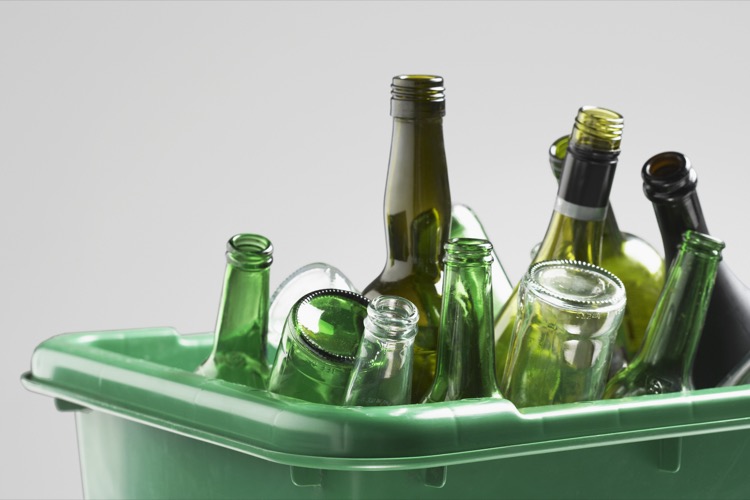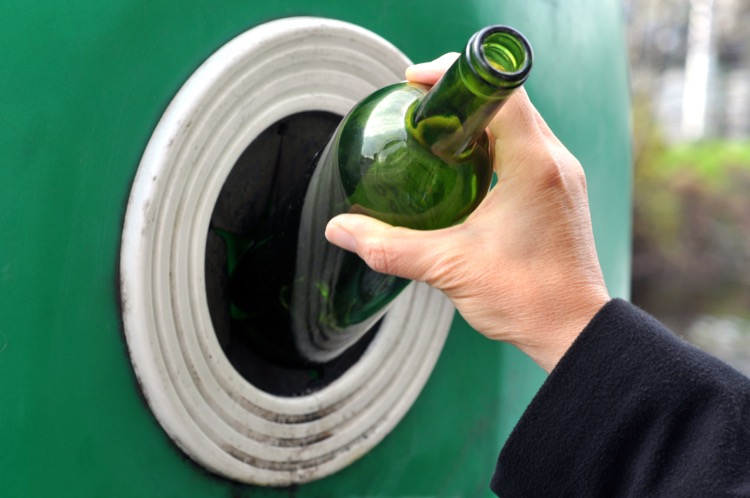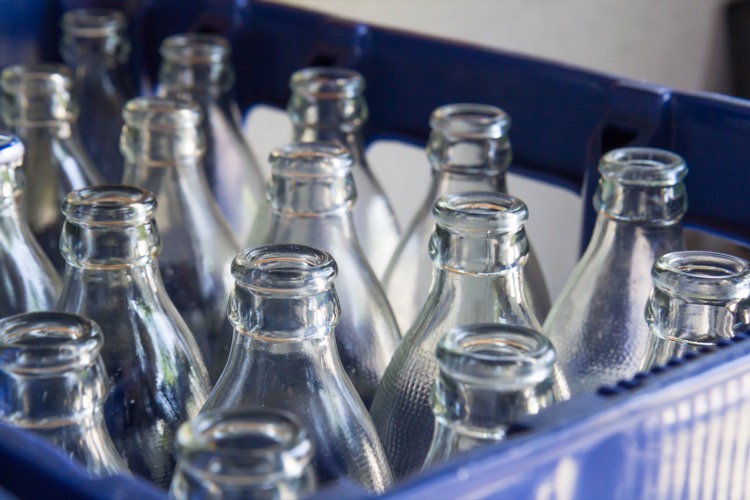Plastic grocery bag bans have gone into effect, restaurants are switching out Styrofoam containers for compostable options, and cafes are moving beyond single-use plastic and paper cups. One of the most important investments a business can make right now is in lowering waste – and infinitely recyclable, reusable glass packaging, is the solution.
Glass Jars & Bottles Ideal for Food Storage
Packaging often ends up in the trash, or best bet, in recycling. But now, trendy low- and no-waste grocery stores and coffee shops have started offering refills in glass containers rather than individually packaged portions in single-use containers or packaging.
“Containers and packaging alone contribute over 23% of the material reaching landfills in the U.S.,” the EPA reports.
When it comes to grocery items, some packaging is still necessary. As Elizabeth Balkan, food waste director at the National Resources Defense Council (NRDC), told Smithsonian Magazine, “packaging is inextricably linked with modernity and convenience.” It’s a necessity for creating shelf-stable food, and that’s where glass comes in as the perfect solution.
Grocery stores around the world are starting to realize that glass is the best option for storage and are aiming for zero waste by introducing refillable glass containers.
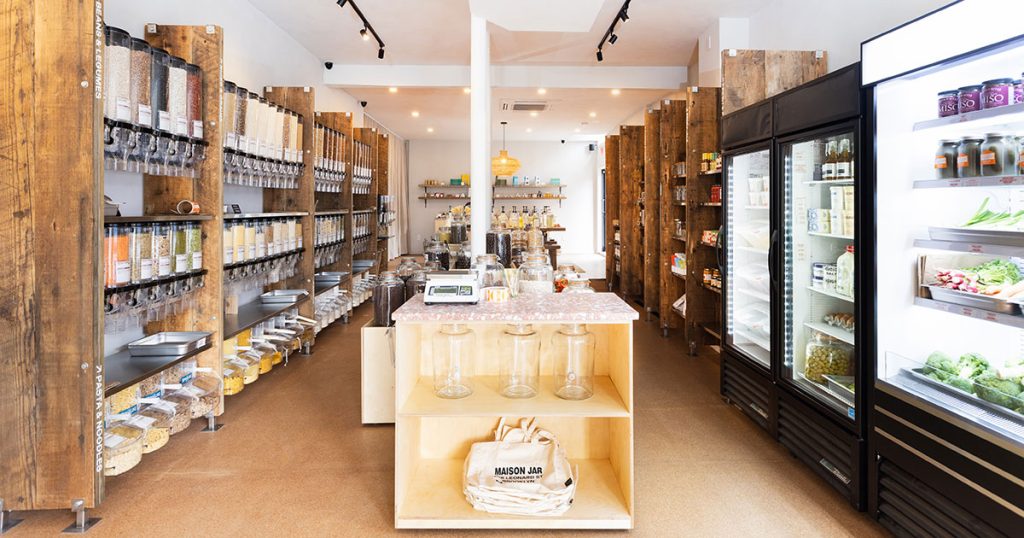
While paper and some plastics can be reused, they don’t last forever. Glass does. It’s made to be infinitely recycled. And for food, glass is the ideal reusable packaging. Virtually inert, glass doesn’t impact the flavor or freshness of food or drinks. It doesn’t leach chemicals into food the same way plastic does, and it doesn’t degrade over time. These qualities make it an ideal material to help businesses achieve both lower waste and lower carbon production.
Businesses use glass to lower waste
The switch to lower waste requires a reconceptualization of how grocery stores operate. For many stores, it makes sense to offer grains and other dry goods in dispensers that customers can use to fill and refill reusable containers, either brought by home or provided by the store. Other stores, like Nada in Vancouver, the Refillery in Edinburgh, and now Realm Refillery in Portland, are expanding the concept as much as they can to include more products, from perishables to skincare.
Realm Refillery stocks staples from local businesses, from bread to kimchi to hummus. Customers can pay a one-time $2 rental fee for glass jars to stock up on all these goodies. And like its European counterparts, Realm also sells home goods and personal items, making it a one-stop shop for its customers.
Customers at Maison Jar in Brooklyn, New York, can bring any container to fill up on dairy, pastas, spices, detergents, soaps and more. Shoppers fill up their jars from bins, pumps and other bulk containers and then pay by weight.
“The space is split into two distinct areas,” founder Lasarati Vitoux said. “A food section with gravity dispensers, scoop bins, and produce crates that takes inspiration from a farmers’ market, and a home goods and personal care section centered around a large farm table that seeks to replicate the comfort of a home.”
The idea is that “little habits make a big difference,” she said.
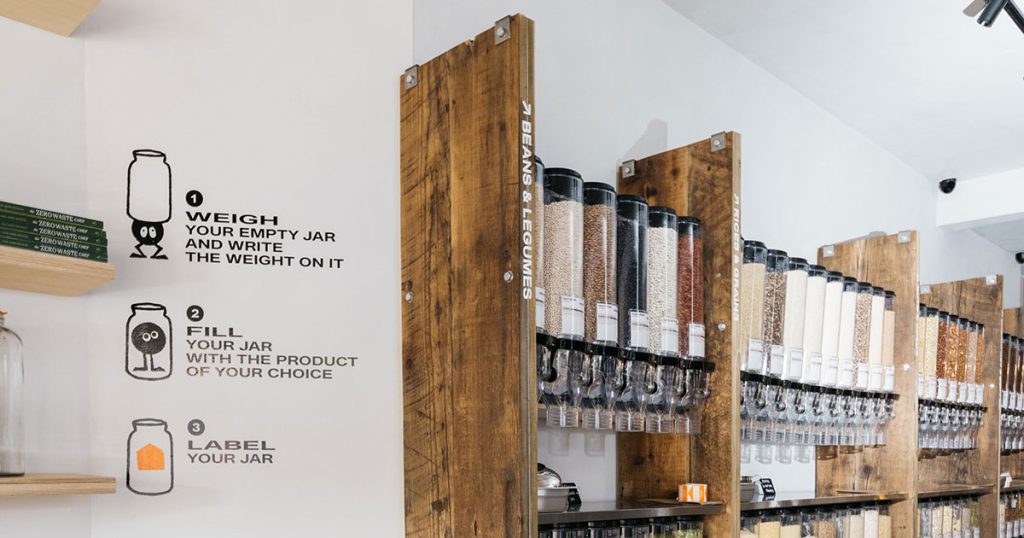
Those little habits are also becoming the norm at coffee shops around the world. At James Coffee Company in San Diego, California, first-time visitors pay for a “glass to-go set” that includes a 12- or 16-ounce glass jar, a koozie and a lid. Return visitors can keep their koozie and lid, drop their clean, used jar into a designated bin, and get a freshly sanitized, new jar for no additional charge from that point on.
Unravel Coffee, which has locations across Colorado, doesn’t charge for glass jars and encourages customers to return with them. On their website, Unravel Coffee points out that even when paper coffee cups are recyclable, people rarely do, while glass is recycled more often. Unravel Coffee hopes that “with glass jars, we at least have a fighting chance that the vessel will be used again, so we encourage our guests to bring them back.”
As habitual as that morning cup of joe is, coffee shops that use glass jars could very well be playing a significant role in influencing consumer habits.
“All across the country now, people have become acclimated to bringing their own bags,” Jennifer Bartashus, a retail analyst at Bloomberg Intelligence, told Bloomberg. “So training them to bring a container may not be a difficult next step.”
Convenience is a big part of that. At Part & Parcel in Durham, North Carolina, shoppers who don’t bring their own container can use a free upcycled glass jar that’s clean, sanitized and ready to go.
“Either we have weighed them in advance, or the customer weighs their own jars when they come in, so we know exactly what to take away,” owner T Land told Spectrum News 1. “It takes a little extra time to do the process but the store is kind of going against the systems that our society says are how we’re supposed to be — like really fast-paced and ultra-convenient and throw away.”
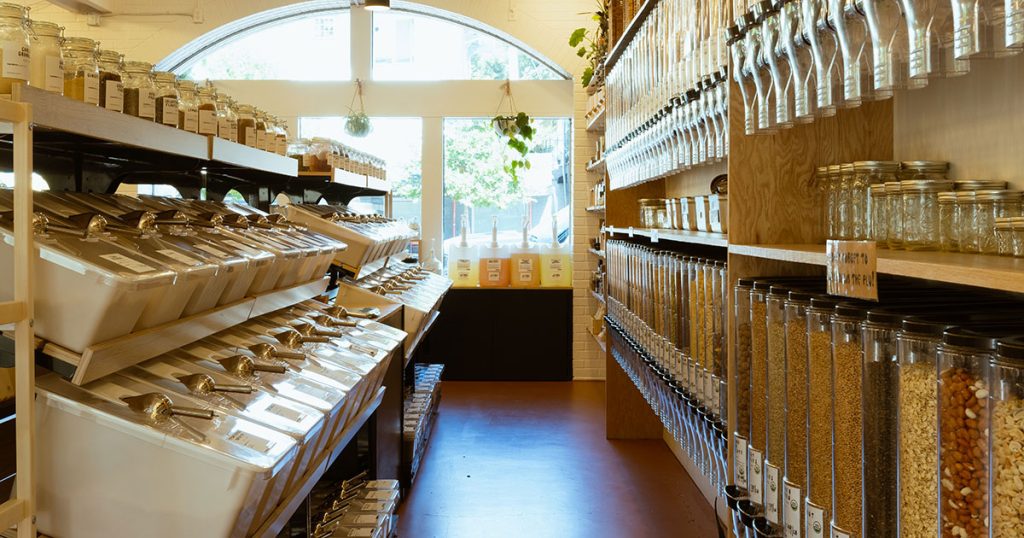
At Dutch supermarket startup Pieter Pot, customers don’t even need to leave their homes. Shoppers purchase groceries through a deposit-and-delivery system that uses glass pots to house all the items. Its limited selection focuses on products that tend to be more shelf-stable, from cookies to ketchup, and has a delivery system that utilizes burlap sacks. The system is circular, so shoppers also return everything they used to the delivery person when their next order arrives.
Terracycle’s Loop shopping system is also offering a circular solution, allowing shoppers to shop their favorite brands in reusable containers, including those made from glass, that are collected after they’re used. Consumers don’t even need to clean out their jars or other packaging before placing them outside for pickup – the Loop team reuses and recycles any recoverable used product.
Lowering emissions and waste are attainable goals for many businesses, thanks to these efforts to swap from single-use packaging to glass. Consumers make an impact every day with their decisions, and businesses around the globe can do the same by making the switch from single-use to reusable containers. Whether it’s through recycling or reuse, glass is never trash.









